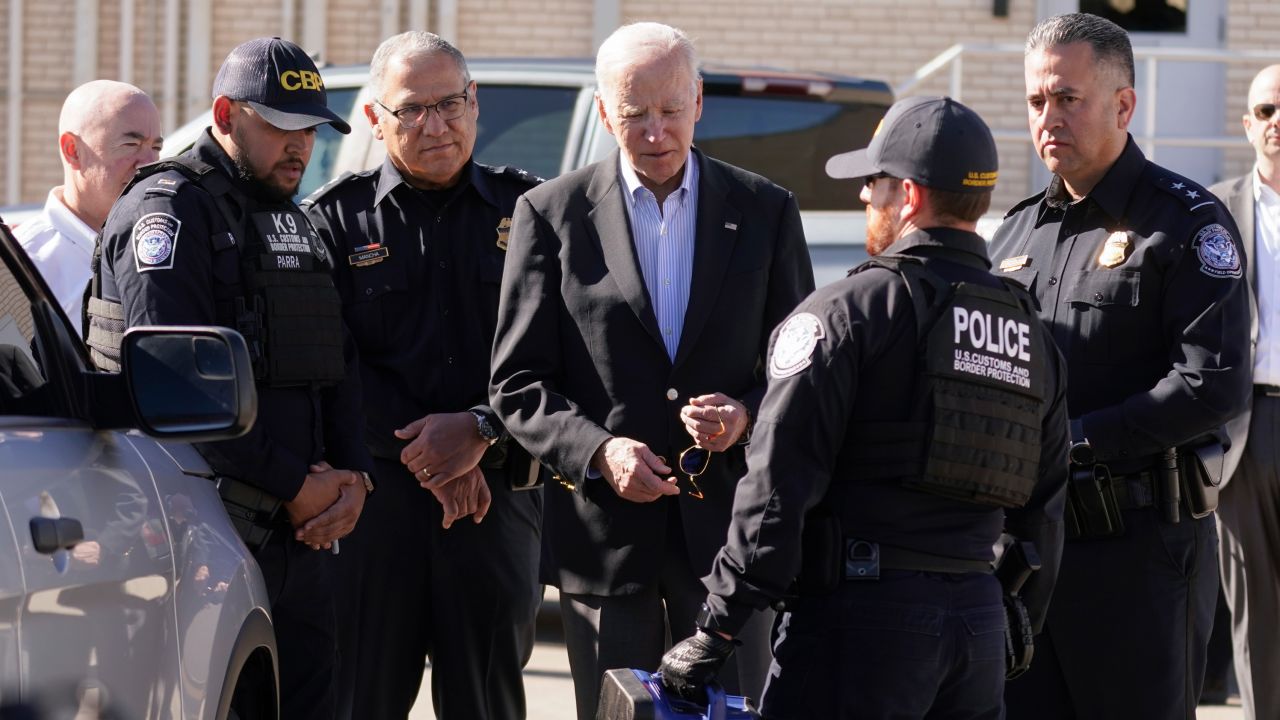(Trends Wide) — The most recent policy from the administration of US President Joe Biden affecting Nicaraguans, Cubans and Haitians highlights the importance of the US-Mexico relationship when it comes to addressing immigration.
The expansion of Title 42 to include more nationalities, for example, relied heavily on Mexico’s acceptance, since it means more people will be returned to that country.
US Homeland Security officials have repeatedly stressed coordination with Mexico in efforts to stem the flow of migrants to the US southern border through patrols and information sharing.

US Customs and Border Protection agents show President Joe Biden a portable X-ray device as he tours the El Paso port of entry, the Bridge of the Americas, a busy port of entry along the border between The US and Mexico, in El Paso, Texas, on Sunday, Jan. 8, 2023. (AP Photo/Andrew Harnik)
“Hopefully, the president’s (Biden) trip (to Mexico) will revitalize those discussions,” a Homeland Security official told Trends Wide.
During the meeting that Biden and the president of Mexico, Andrés Manuel López Obrador, had last July, the US president described the relationship as “strong and productive.”
While the United States and Mexico have worked together on the issue, Biden and López Obrador have a sometimes strained relationship. That came to light when López Obrador opted to skip the Summit of the Americas, a gathering hosted by the United States, last year, citing the US decision not to invite Nicaragua, Cuba and Venezuela.
López Obrador also recently criticized the US for “supporting” the removal of the former president of Peru, Pedro Castillo. Last month, US State Department spokesman Ned Price said Washington “categorically” rejects “any act that undermines democracy” and “contradicts Peru’s constitution” after Castillo tried to dissolve the Peruvian Congress. Later, Castillo was dismissed.
Experts say López Obrador, known by the acronym AMLO, has sought to assert himself as an equal with the US, a dynamic that may be at play during this week’s North American Leaders summit in Mexico City.
“AMLO will try to reaffirm himself. He understands that America has power. It flirts with rhetorical pressure, but it doesn’t go overboard,” said Andrew Selee, president of the Migration Policy Institute, emphasizing that it’s still a working relationship.
Just days before the summit, where drug trafficking is also expected to be one of the topics of discussion, Mexican authorities arrested Ovidio Guzmán, son of notorious drug lord Joaquín “El Chapo” Guzmán.
When asked what steps the United States would like Mexico to take to reduce trafficking and smuggling of fentanyl, US National Security Council spokesman John Kirby said he did not want to “get ahead of the summit.” , but applauded the arrest of Guzmán, an alleged key fentanyl trafficker.
“That is not an insignificant achievement by the Mexican authorities and we are certainly grateful for that. So we will continue to work with them in unison to see what we can do together to try to limit that flow, but it is significant,” Kirby said.




